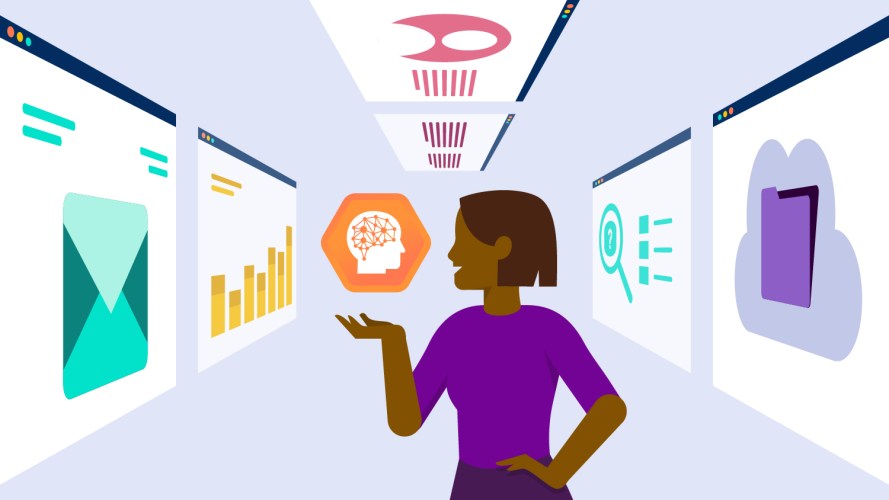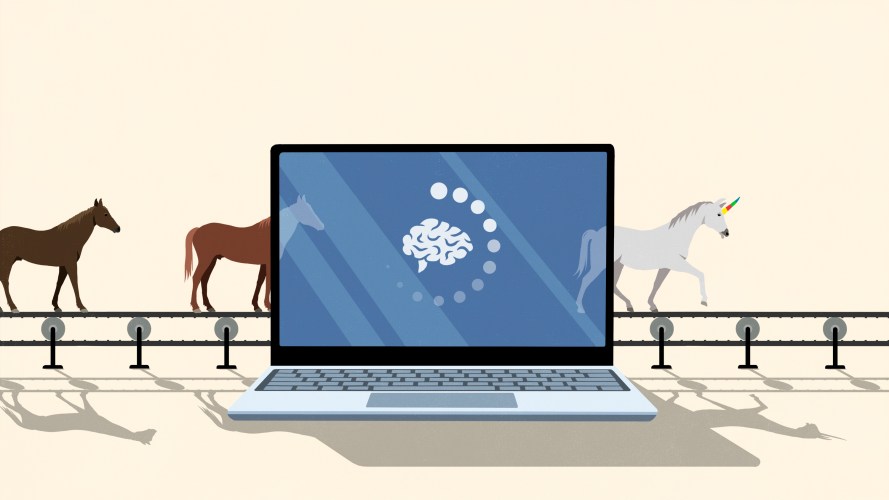Customer Revenge Is Soaring — Generative AI Can Help Fix Those Relationships

If customers are dissatisfied with a service experience, they won’t hesitate to take their business somewhere else. Generative AI can help boost customer satisfaction and build experiences that drive loyalty.

Lisa Lee
Customer expectations are high. They want connected, personalised interactions from businesses that anticipate their needs and respond to them with targeted efficiency. So providing great customer experience has become a powerful differentiator for businesses. And one of the most effective tools they can use to support it is generative AI.
The case for improvement in customer experience
- The State of the Connected Customer report found 88% of customers agree that the experience a company provides is as important as its product or services — up from 80% in 2020.
- Customer loyalty is precious and hard won — 71% of consumers switched brands at least once in the past year.
- While better deals and product quality were the main reasons for customers making a switch, better customer service came in third and accounted for just under half of those defections.
- Further down the list — but still significant — was making a change for better alignment with values, which drove 27% of the defections.
Generative AI for customer connection
Find out how marketers are using generative AI to reshape their strategies.



The customer view
Empathy is a key ingredient in great customer experience. But customers are finding it hard to come by. Seventy-three percent expect companies to understand their unique needs and expectations but 56% say most companies treat them like a number. And 62% of customers say they feel an emotional connection to the brands they buy from the most. The challenge for businesses is to not squander that powerful emotional connection, but lean into it with empathetic encounters — both digital and personal.
What the difference looks like
84% of IT leaders believe generative AI will help them serve customers better.
Service reimagined around generative AI can yield:
- Smarter chatbots that automate smarter, more personalised responses capable of analysing customer sentiment
- Automatic creation of better knowledge articles so customers can solve their own problems
- Automatic identification of internal experts across the organisation to solve more complex customer problems
What is digital empathy and how can it improve the customer relationship?
Digital empathy requires being aware of customers’ emotions, tone, and language, and anticipating their needs and problems, virtually. But siloed customer data can be an obstacle to achieving digital empathy. Thirty-three percent of service professionals, for instance, say their relationships with other departments are siloed. And 60% of customers say it generally feels like they’re communicating with separate departments, not one company.
AI solutions can help businesses meet these challenges by integrating data across departments for a 360-degree view of customers that reveals empathy-building insights. Then generative AI can act on those insights by supporting digital interactions with personalised, relevant and up-to-date information. For example, Einstein GPT, the world’s first generative AI for CRM, offers AI-created content across every sales, service, marketing, commerce, and IT interaction.
When layered on top of customer service technologies and integrated across sales, marketing, and commerce, generative AI will transform the customer experience. At the iconic Australian brand, R.M.Williams, for example, AI-powered tools like Service Cloud Voice help the service team answer customer phone calls and know immediately who is calling. They also have instant access to a real-time 360-degree view of the customer so they can easily respond to customer questions about order or repair status.
Generative AI tools like Einstein Chat have the power to further boost this kind of personalised efficiency by prompting the service rep with next best actions or responses to customer questions.
GPT-4 has the potential to up the service stakes even further by processing, understanding, and interpreting not just text but audio, video and images. The possibilities are mind-boggling. One example: it can recognise visual and audio cues during a service or sales call to determine a person’s emotions, automatically escalating cases.
Here are some ways that generative AI can improve the customer experience:
Smarter chatbots
Is there anything more annoying than a chatbot that gives canned answers, or a menu of choices that don’t address the problem? Generative AI, used with existing AI, automates the creation of smarter, more personalised chatbot responses grounded in trusted CRM data that can truly understand, anticipate, and respond to problems. It also powers better-informed answers to nuanced customer questions, by analysing sentiment and recognising patterns. All of this will help human agents, who can review responses before they reach customers.
Better self service
Generative AI’s bread and butter is automated content creation. It will be used to draft knowledge articles based on service case notes, messaging history, and data across sales, marketing, service, and commerce. This means customers will have a much deeper, intuitive, complete pool of information to self-serve, taking some pressure off call centres and agents with case deflection.
Plus, it speaks to the growing willingness of customers to use self-service options. The State of the Connected Customer report shows 58% have used chatbots for simple customer service, up from 42% in 2020. And the report found that Millennials and Gen Z in particular prefer self-service for simple use cases.
Faster case swarming
Service agents can better handle more complex problems when they draw expertise from across the organisation. This is called case swarming. Using generative AI, lessons from previous swarms can be shared and broadly applied. It can identify who has the best skills to address issues, and can recommend resolutions and communications to fast track and even automate many aspects of the swarm.
AI solutions you can trust
Customer experience is about creating a human connection built on trust. Salesforce’s AI development, for example, prioritises built-in product guardrails that help users identify high-risk processes, assess the potential for harm, and mitigate risks strategically while still meeting their business needs.
The opportunity now is for businesses to leverage the power of generative AI solutions to get closer to their customers. With it they can deliver personalised customer experiences at scale, build loyalty, and nurture that emotional connection customers have with the businesses they buy from the most.
Discover the trends shaping the future of customer engagement
Insights from 14,300 consumers and business buyers on how AI, digital transformation, and macroeconomic trends are changing customer engagement.























